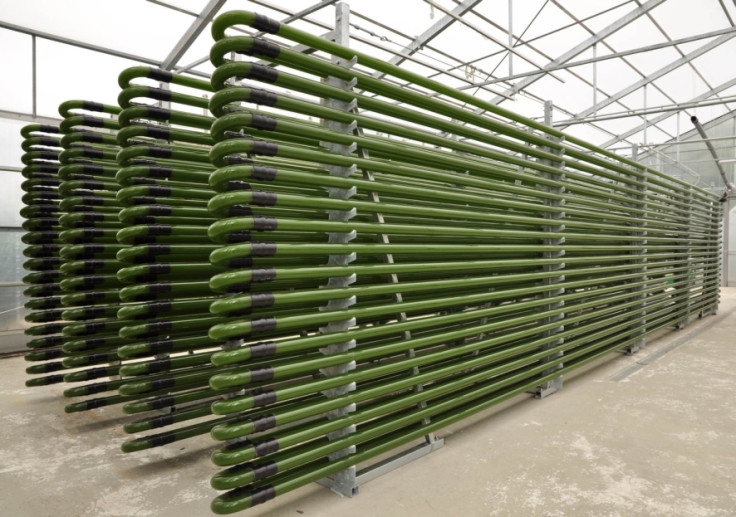Soylent 3.0: Bioengineered algae could support long-distance space travel

The next incarnation of powdered food replacement Soylent may come in the form of a single algae superorganism that provides all the nutrients a body needs, according to Soylent creator Rob Rhinehart. Such a system would require only sunlight, air and water and could be used to sustain astronauts on long-distance journeys, or be piped directly into people's houses.
Algae grown by the biotech firm Solazyme is already used in current versions of Soylent, though Rhinehart is aiming to bioengineer a strain that would replace the powdered version entirely.
"We've taken a big step already with 20% of total calories [in Soylent 2.0] coming from algae," Rhinehart told Motherboard. "I see no reason why we can't get to total single cell synthesis within a few years.
"In the interest of building a sustainable business to fund our research we've been focused primarily on product improvements and new products... but I've also worked on setting up infrastructure including lab building and recruiting and drawn up a road map for reaching the goal of cell synthesis, starting with protein. This process has two modules: one strain engineering to develop and optimise the organism that produces, the other bioreactor engineering to make an ideal growth environment for the strain(s)."
By Rhinehart's own calculations, a 100,000 sq ft warehouse dedicated to producing the algae would be able to sustain four million people. This could "easily" be scaled up or down to cater for different numbers of people.
Rhinehart also envisions a scenario where people have their own miniature production plants in their homes for "food on demand". One of the benefits of using algae over the current chemical-based batches of Soylent is that it comes from a natural food source.
Powdered food replacement made up of natural ingredients already exist, such as Ambronite, however the cost of production makes them significantly more expensive than alternatives like Soylent or Huel.
"The main thing with longer space voyages that we're currently seeing, the trend in this sort of research is stemming from the fact that we haven't really solved nutrition science ," Simo Suoheimo, co-founder of Ambronite, told IBTimes UK in a recent interview. "We're still very much in the beginning of understanding what nutrients play a part in human survival and indeed optimising performance.
"The fact is that with the current knowledge it's really hard to create a complete product with synthetics because we don't even know yet what we have to include in there. Whereas products based on real actual foods solve this pretty well."
© Copyright IBTimes 2025. All rights reserved.






















